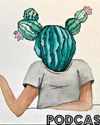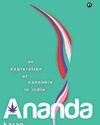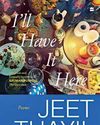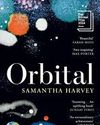
SEPTEMBER 2000
It was nearly midnight by the time 19-year-old Amy Waldroop returned to her cramped Los Angeles apartment, and she was exhausted. After a full day's work at a florist shop, she had put in another six hours waiting tables before heading home.
Pushing the key into the lock, she quietly opened the door so as not to wake her younger siblings. She stepped into the front room and froze. The apartment was a shambles: plates of half-eaten food were scattered in front of the TV; toys littered the floor; clothes, shoes and homework were strewn everywhere.
Amy's eyes welled with tears.
This is just way too much for me, she thought. Her worst fears began to race through her mind. Soon she was sobbing. Would the court tell her she couldn't care for her family anymore? Would the kids go through the torture once more of being split up and sent away? She was so young, almost a child herself, and yet Amy knew everything depended on her. Everything. At that moment, she wondered if she would ever find the strength to see it through.
AMY WALDROOP HAD been born dead. Physicians fought and Asaved this smaller twin of a drug-addicted mother, and she'd had to fight for everything in life ever since.
From earliest childhood, Amy took care of her younger siblings. First it was her sister Amanda, four years younger. Then, when Amy was 10, along came Adam, followed by Joseph and finally Anthony. With a mother so often high-if not gone altogether it frequently fell to Amy to feed and change the babies, lull them to sleep when they cried and care for them when they were sick.
Denne historien er fra April 2022-utgaven av Reader's Digest India.
Start din 7-dagers gratis prøveperiode på Magzter GOLD for å få tilgang til tusenvis av utvalgte premiumhistorier og 9000+ magasiner og aviser.
Allerede abonnent ? Logg på
Denne historien er fra April 2022-utgaven av Reader's Digest India.
Start din 7-dagers gratis prøveperiode på Magzter GOLD for å få tilgang til tusenvis av utvalgte premiumhistorier og 9000+ magasiner og aviser.
Allerede abonnent? Logg på

ME & MY SHELF
Siddharth Kapila is a lawyer turned writer whose writing has focussed on issues surrounding Hinduism. His debut book, Tripping Down the Ganga: A Son's Exploration of Faith (Speaking Tiger) traces his seven-year-long journey along India's holiest river and his explorations into the nature of faith among believers and skeptics alike.

EMBEDDED FROM NPR
For all its flaws and shortcomings, some of which have come under the spotlight in recent years, NPR makes some of the best hardcore journalistic podcasts ever.

ANURAG MINUS VERMA PODCAST
Interview podcasts live and die not just on the strengths of the interviewer but also the range of participating guests.

WE'RE NOT KIDDING WITH MEHDI & FRIENDS
Since his exit from MSNBC, star anchor and journalist Mehdi Hasan has gone on to found Zeteo, an all-new media startup focussing on both news and analysis.

Ananda: An Exploration of Cannabis in India by Karan Madhok (Aleph)
Karan Madhok's Ananda is a lively, three-dimensional exploration of India's past and present relationship with cannabis.

I'll Have it Here: Poems by Jeet Thayil, (Fourth Estate)
For over three decades now, Jeet Thayil has been one of India's pre-eminent Englishlanguage poets.

Orbital by Samantha Harvey (Penguin Random House India)
Samantha Harvey became the latest winner of the Booker Prize last month for Orbital, a short, sharp shock of a novel about a group of astronauts aboard the International Space Station for a long-term mission.

She Defied All the Odds
When doctors told the McCoombes that spina bifida would severely limit their daughter's life, they refused to listen. So did the little girl

DO YOU DARE?
Two Danish businesswomen want us to start eating insects. It's good for the environment, but can consumers get over the yuck factor?

Searching for Santa Claus
Santa lives at the North Pole, right? Don't say that to the people of Rovaniemi in northern Finland